detail profile alexandru potocean
Peran Yang Di Mainkan Alexandru Potocean
 A young Romanian gendarme Cristi tries...
A young Romanian gendarme Cristi tries...Poppy Field 2022
A young Romanian gendarme, Cristi, tries to find the balance between two apparently opposing parts of his identity: that of a man working in a macho hierarchical environment and that of a closeted gay person who tries to keep his personal life a secret. Cristi is called in for an intervention at a movie theatre, where an ultra-nationalist, homophobic group has interrupted the screening of a queer film. After one of the protesters threatens to out him, Cristi spirals out of control.
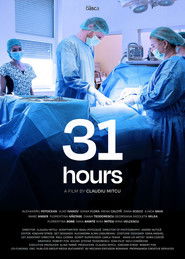 Stefan the only surgeon available takes...
Stefan the only surgeon available takes...31 hours 2021
Stefan, the only surgeon available, takes on one final patient after working a 31-hour shift. In what should have been a simple procedure the 8-year old boy dies on the table. In this powerful short, the corrupt Romanian health care system is put under close scrutiny upon the backdrop of sorrow, payoffs and threats.
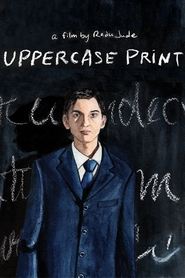 In 1981 chalk slogans written in uppercase...
In 1981 chalk slogans written in uppercase...Uppercase Print 2020
In 1981, chalk slogans written in uppercase letters started appearing in public spaces in the Romanian city of Botoşani. They demanded freedom, alluded to the democratic developments taking place in Romania’s socialist sister countries or simply called for improvements in the food supply. Mugur Călinescu was behind them, who was still at school at the time and whose case is documented in the files of the Romanian secret police. Theatre director Gianina Cărbunariu created a documentary play based on this material.
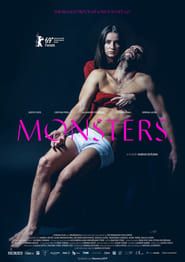 A long time married couple comes...
A long time married couple comes...Monsters. 2019
A long time married couple comes to decide within 24 hours, through encounters with strangers, that letting go might be their biggest proof of love.
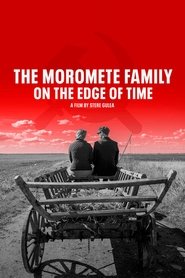 A sequel to one of Romanian...
A sequel to one of Romanian...Moromete Family: On the Edge of Time 2018
A sequel to one of Romanian cinema’s most lauded adaptations, The Moromete Family, film tells the tale of Ilie Moromete and his family and focuses on his youngest son, Niculae. The entire order of the world of the village, where the most important thing is to own land and work it, changes upon the arrival of the Communist regime and collectivization.
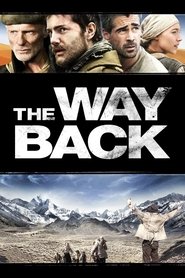 At the dawn of WWII several...
At the dawn of WWII several...The Way Back 2010
At the dawn of WWII, several men escape from a Russian gulag—to take a perilous and uncertain journey to freedom as they cross deserts, mountains and several nations.
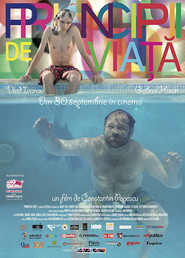 Velicanu considers himself a fulfilled person...
Velicanu considers himself a fulfilled person...Principles of life 2010
Velicanu considers himself a fulfilled person. He's got money, a new villa, married a younger woman and has a son from a previous marriage. Before the holidays he has to leave everything in order, but things start to get complicated. The crisis at the end of the day make him wonder whatever he is indeed a happy, fulfilled person...
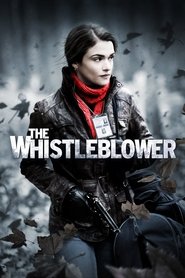 Nebraska cop Kathryn Bolkovac discovers a...
Nebraska cop Kathryn Bolkovac discovers a...The Whistleblower 2010
Nebraska cop Kathryn Bolkovac discovers a deadly sex trafficking ring while serving as a U.N. peacekeeper in post-war Bosnia. Risking her own life to save the lives of others, she uncovers an international conspiracy that is determined to stop her, no matter the cost.
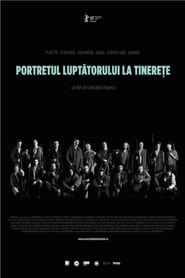 When the Soviet Army marched into...
When the Soviet Army marched into...Portrait of the Fighter as a Young Man 2010
When the Soviet Army marched into Romania in 1944, a part of the Romanian population went “into the mountains” – a diverse assortment of nationalists and fascists, liberals, apolitical farmers and members of the middle-class, who were affected by the Communists’ expropriations. Over a thousand armed resistance groups took refuge in the inaccessible forests of the Carpathian Mountains where they waited in vain for the support of the Western Allies. One of them was led by Ion Gavrilă-Ogoranu, who managed to remain undetected until 1976 when he was arrested. This film depicts the daily existence of this group. It tells the story of a struggle that became an end in itself, as the enemy was constantly in pursuit and arrest meant torture and often liquidation. Hungry and emotionally withdrawn, the group of young men got entangled in a partisan war that could not be won, lost in the landscape of the South Carpathians, accompanied by a vigilant secret police, the Securitate.
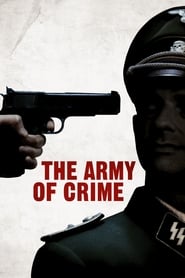 This gripping historical drama recounts the...
This gripping historical drama recounts the...Army of Crime 2009
This gripping historical drama recounts the story of Armenian-born Missak Manouchian, a woodworker and political activist who led an immigrant laborer division of the Parisian Resistance on 30 operations against the Nazis in 1943. The Nazis branded the group an Army of Crime, an anti-immigrant propaganda stunt that backfired as the team's members became martyrs for the Resistance.
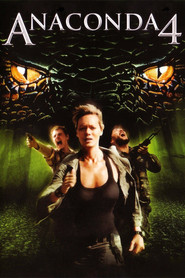 A genetically created Anaconda cut in...
A genetically created Anaconda cut in...Anacondas: Trail of Blood 2009
A genetically created Anaconda, cut in half, regenerates itself into two new aggressive giant snakes, due to the Blood Orchid.
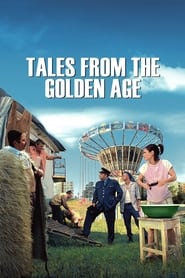 Composed of six unconventional vignettes each...
Composed of six unconventional vignettes each...Tales from the Golden Age 2009
Composed of six unconventional vignettes, each one dealing with the late communist period in Romania, a narrative is told through its urban myths from the perspective of ordinary people. The title refers to the alluded "Golden Age" of the last 15 years of Ceauşescu's regime.
 After suffering terrible headaches and stomach...
After suffering terrible headaches and stomach...The Death of Mr. Lazarescu 2005
After suffering terrible headaches and stomach cramps, Mr. Lăzărescu, a lonely 63 year-old man, calls for an ambulance, beginning one man’s hellish journey through Bucharest hospitals in search of proper medical care. As the night unfolds, his health starts to deteriorate fast.

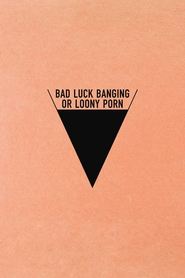 Emi a school teacher finds her...
Emi a school teacher finds her...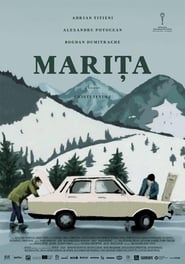 Costi 30 suddenly comes up with the...
Costi 30 suddenly comes up with the...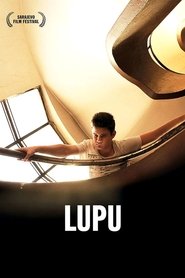 Wolf is a lonely boy who...
Wolf is a lonely boy who...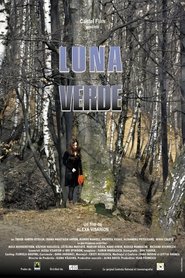 Contemporary story of young people in...
Contemporary story of young people in... In a small village of Communistera...
In a small village of Communistera... Two college roommates have 24 hours to...
Two college roommates have 24 hours to... Out of enthusiasm a Militia soldier...
Out of enthusiasm a Militia soldier...